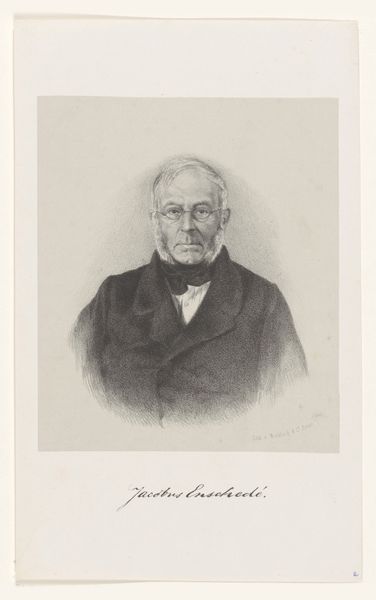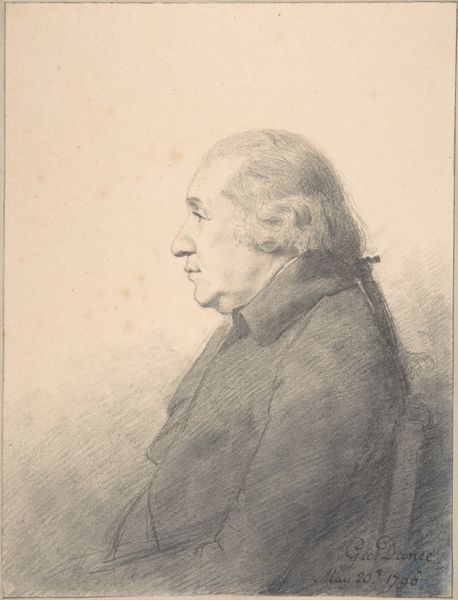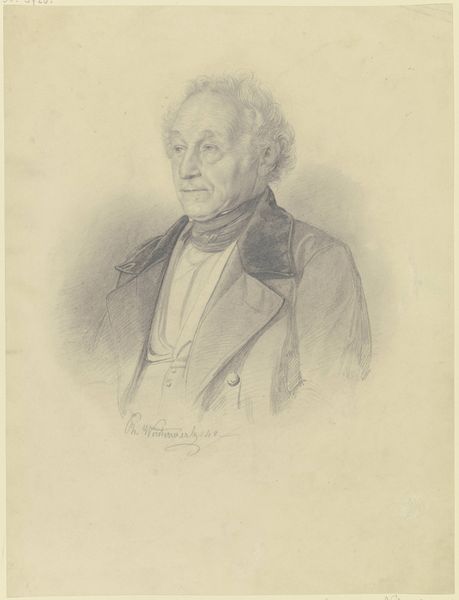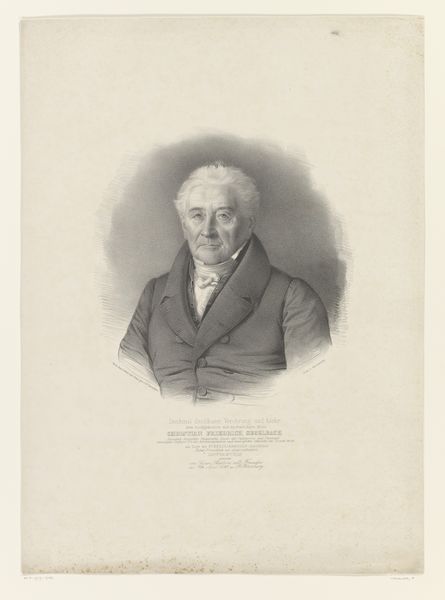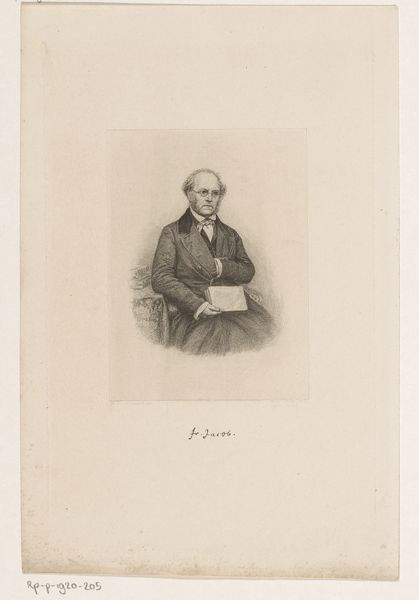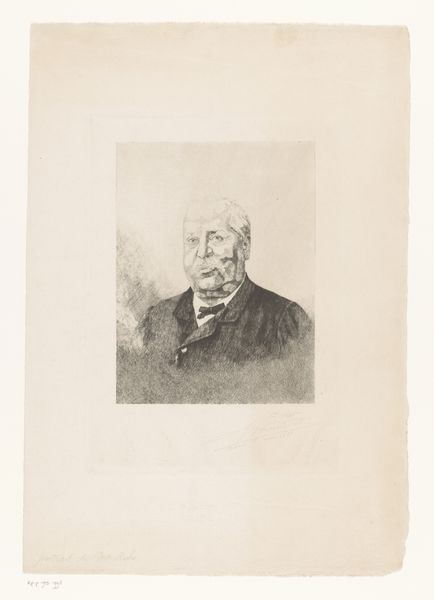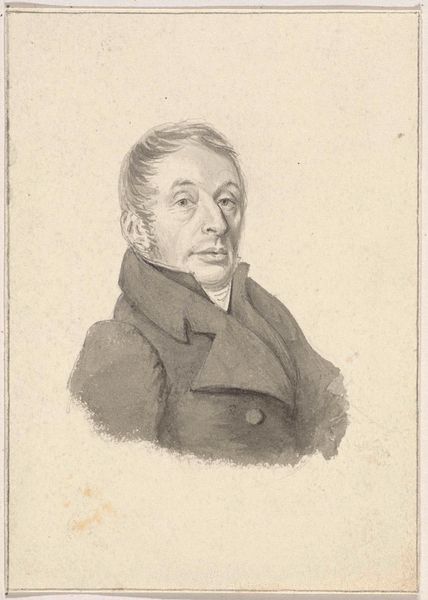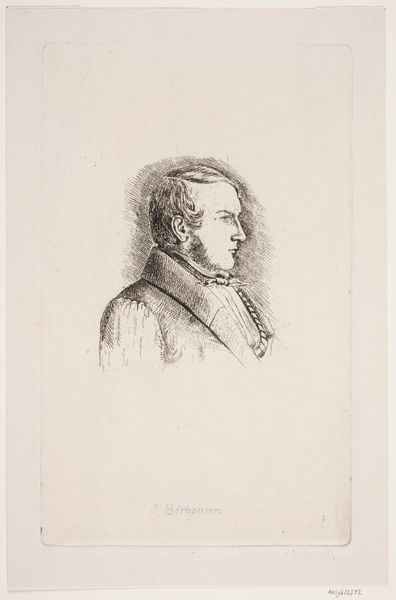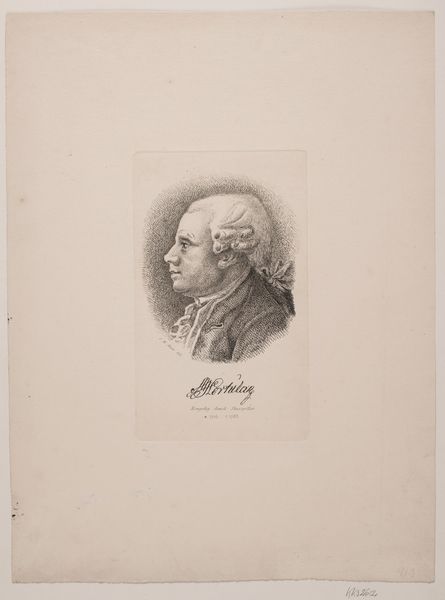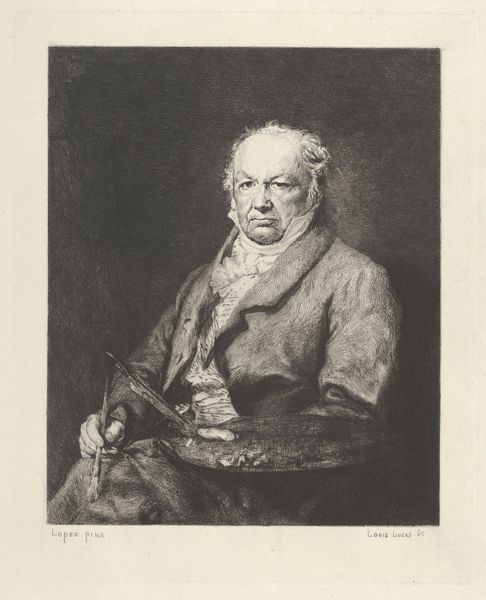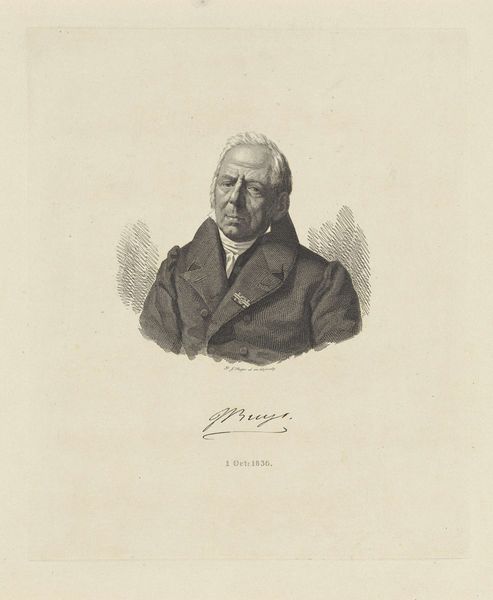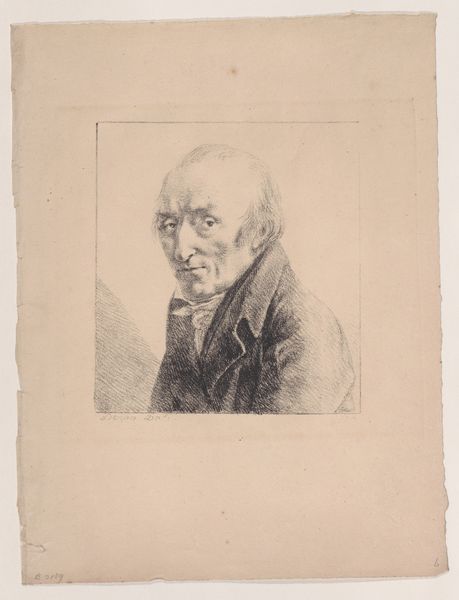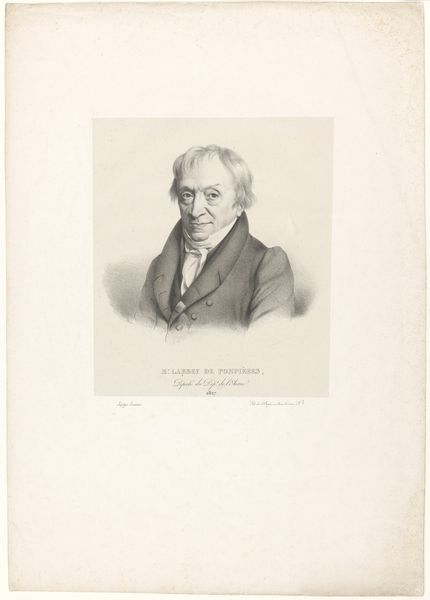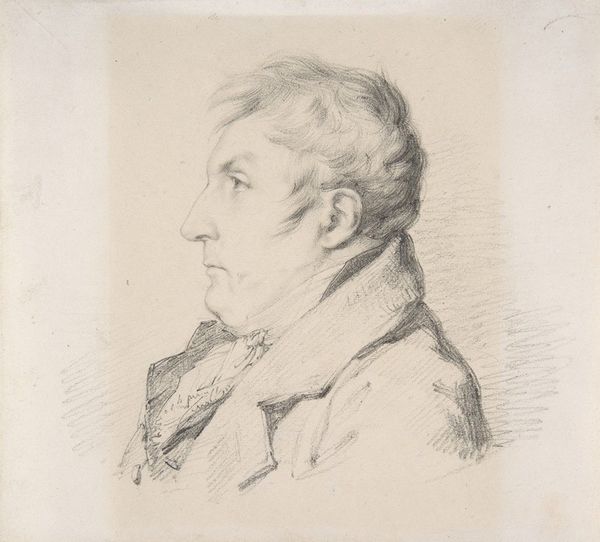
drawing, pencil
#
portrait
#
pencil drawn
#
drawing
#
pencil sketch
#
pencil drawing
#
pencil
#
portrait drawing
#
academic-art
#
realism
Dimensions: height 621 mm, width 441 mm
Copyright: Rijks Museum: Open Domain
Editor: This is Hendrik Johannes Haverman's "Portrait of an Unknown Man Named Blussé" from 1901, made with pencil. It's so delicately rendered. The cross-hatching gives such a strong sense of form. What stands out to you about it? Curator: Beyond the artistic skill, which is undeniable, I see a powerful commentary on portraiture in the late 19th and early 20th centuries. Think about who was getting their portrait done, and how. Was it usually the aristocracy? Editor: Right, people of a certain stature, and often in a very posed, formal manner. Curator: Exactly. And here we have an "unknown man." The very title points to a shift, a democratizing of the art of portraiture, if you will. Haverman isn’t interested in idealizing; he presents a very real, human likeness, in all its specificity. What does that say about art's function in society at that moment? Who gets remembered, and why? Editor: That makes me rethink the artist’s choice of such a readily available material such as pencil. I’d assumed it’s just because it was quick and simple. Curator: It could be those things too, but don’t underestimate the political implication of using everyday materials and depicting ordinary people. The shift challenges the artistic conventions that uphold certain social structures. Even the gaze, averted and somewhat melancholic, moves away from the self-assured portraits commissioned to reinforce power. Editor: It really brings the portrait alive and relates it directly to society! I won't look at portraiture the same way. Curator: Hopefully, you'll now consider how those depictions can both reflect and subtly reshape the societies we live in.
Comments
No comments
Be the first to comment and join the conversation on the ultimate creative platform.
